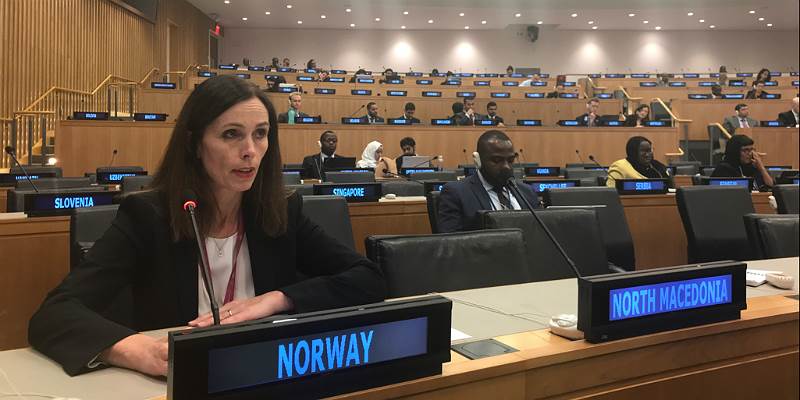Chair,
We have agreed on an ambitious reform. The goal is improving the ability of the UN development system to assist countries in accelerating their implementation of the 2030 Agenda, and to do so in a more coherent, integrated, efficient and effective way.
The true test of our success will be whether persons and communities experience actual improvement in their lives, in their environment and in their societies. We must hear from stakeholders at country level what works and what does not.
UN reform is a complex and challenging task, and it is still in an early phase. We will succeed only if all UN entities align their policies and procedures with the goals of reform.
Transparency is crucial for our confidence in reform. Transparency will enable us to engage actively and meaningfully in the governing bodies and intergovernmental processes, as well as at country level. This means that all internal system-wide guidance documents and relevant reports must be made publicly available.
We look forward to receiving the briefing notes and informal briefings on progress in the implementation of GA resolutions 71/243 and 72/279 – as was agreed in the operational segment of ECOSOC this year. And we look forward to receiving them in this session of the General Assembly, so that we can better prepare for the QCPR negotiations next autumn.
The QCPR asks for “whole of system” approaches in conflict-affected countries. We would like to learn how the reforms strengthens the linkages between peacebuilding and development work at country level.
Chair,
Allow me to highlight six areas we see as particularly important:
The new resident coordinator system. It is crucial that the resident coordinators are genuinely empowered to lead the UNDS efforts at country level. As we – the Member States, have asked for. This will only happen with the full implementation of the Management and Accountability Framework.
The UN Sustainable Development Cooperation Framework must reflect the UN’s comparative advantage in each country. The UN cannot do everything everywhere. A broadly consultative Common Country Assessment, which looks into the root causes for inequality, poverty and vulnerability, would in our view, be a crucial entry point.
Leaving no one behind. UN engagement should contribute to reducing inequalities and promoting human rights and international norms and standards.
Gender equality and empowerment of women has a multiplier effect for achieving sustained and inclusive growth, poverty eradication and sustainable development. The QCPR monitoring unfortunately shows that the UNDS has a long way to go in improving gender mainstreaming. Norway expects full implementation of the UN System-wide Action Plan on Gender Equality.
Funding. The present funding pattern is an obstacle to reform. We therefore welcome the Funding Compact. As Member States, we should all look into how we can improve the flexibility and predictability of our funding. Insufficient funding of the new resident coordinator system remains a concern. Burden-sharing is a crucial multilateral principle in this regard. Norway is prepared to do our part.
Reporting. As agreed upon at the ECOSOC Operational Segment this year, we look forward to receiving a comprehensive, evidence-based and analytical annual report by the Secretary-General next year, on the follow up of the QCPR and General Assembly resolution 72/279, including on the resident coordinator system. In addition, we look forward to receiving the evidence-based, comprehensive and analytical annual report on the Development Cooperation Office.
Some elements of the reform are not yet in place: the review of regional assets and the Multi Country Office Review. We look forward to engaging further in these processes. But to do so, we need a timeline for consultations with Member States, as well as briefing notes on progress.
Finally, let me assure you of Norway’s continued full engagement and support in making the reform of the UN development system a success.
Thank you.
